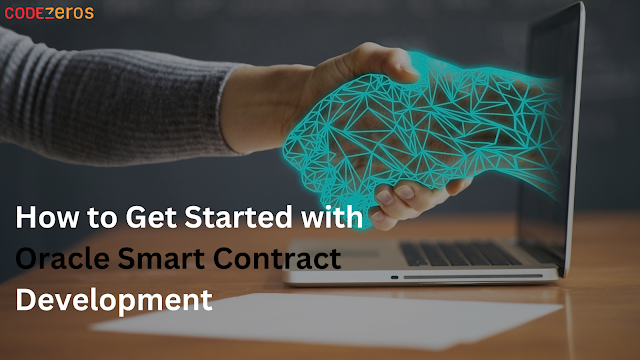Understanding Oracle Smart Contract Development
Before diving into the development process, it's crucial to grasp the concept of Oracle Smart Contracts. These are self-executing contracts with the added capability of interacting with external data sources, known as oracles. Oracles serve as intermediaries that fetch real-world data, such as stock prices, weather information, or sports scores, and relay it to smart contracts. This data interaction enables smart contracts to make informed decisions and automate processes based on real-world events.
Setting Up Your Development Environment
To begin your Smart Contract Development journey, you'll need a suitable development environment. Ethereum is one of the most popular blockchain platforms for smart contracts, and it supports Oracle Smart Contracts as well. Here's what you need to do:
- Install Ethereum Development Tools: Start by installing Ethereum development tools like Truffle and Ganache. Truffle is a development framework, while Ganache provides a local blockchain environment for testing your smart contracts.
- Get an Ethereum Wallet: You'll need an Ethereum wallet to interact with the Ethereum network. Popular options include MetaMask and MyEtherWallet.
- Choose a Programming Language: Oracle Smart Contracts on Ethereum are typically written in Solidity, a smart contract programming language. Familiarize yourself with Solidity and its syntax.
Developing Your First Oracle Smart Contract
Now that you have your Oracle smart contract development environment set up, it's time to create your first Oracle Smart Contract. Let's outline the steps:
- Design Your Smart Contract: Define the purpose and functionality of your smart contract. Decide which external data sources (oracles) your contract will interact with.
- Write the Solidity Code: Using the Solidity programming language, write the code for your smart contract. Be sure to import any necessary libraries and include functions for interacting with oracles.
- Implement Oracle Integration: Integrate oracles into your smart contract by using Ethereum's oracle interfaces. Popular oracle solutions for Ethereum include Chainlink and Band Protocol. Consult their documentation for guidance on integration.
- Testing: Test your smart contract extensively using the local blockchain environment provided by Ganache. Ensure that it functions as intended and correctly interacts with the chosen oracle.
- Deployment: Once your smart contract is thoroughly tested, it's time to deploy it to the Ethereum mainnet or a testnet. Deploying to a testnet is advisable for initial testing and debugging.
Securing Your Oracle Smart Contract
Creating oracle-based smart contracts isn't just about creating functional contracts; it's also about ensuring their security and reliability. Here are some essential security considerations:
- Code Auditing: Have your smart contract code audited by experts who specialize in blockchain security. They can identify vulnerabilities and recommend improvements.
- Oracle Selection: Choose reputable and decentralized oracles to fetch external data. Relying on a single oracle can introduce a single point of failure.
- Data Verification: Implement mechanisms to verify the accuracy and authenticity of data fetched from oracles. Consider using multiple oracles for data redundancy.
- Emergency Controls: Include mechanisms for pausing or modifying the behavior of your smart contract in case of unexpected events or vulnerabilities.
Expanding Your Knowledge
It is crucial to stay up-to-date and enhance your skills. Therefore, consider the following:
- Community Engagement: Join blockchain and smart contract development communities to connect with like-minded individuals and learn from their experiences.
- Documentation and Tutorials: Explore the extensive documentation and tutorials available online for Ethereum, Solidity, and Oracle integration.
- Online Courses: Enroll in online courses or attend workshops dedicated to smart contract development and oracles.
In conclusion, Oracle Smart Contract Development opens up exciting possibilities for blockchain applications that require access to real-world data. By setting up your development environment, writing Solidity code, integrating oracles, and prioritizing security, you can embark on a rewarding journey into this innovative field. Remember, continuous learning and community engagement will be your allies as you delve deeper into the world of Oracle Smart Contract Development.

Comments
Post a Comment